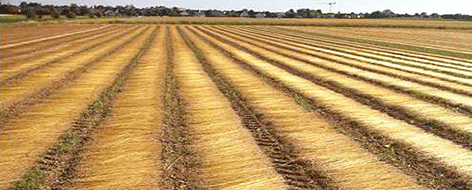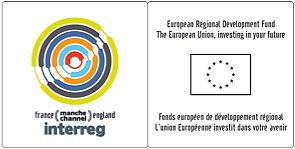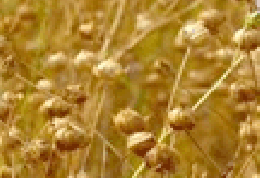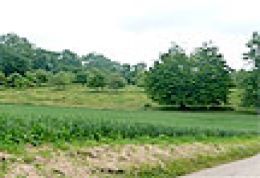
Flax - Increasing its value for society brings together two regional research centres of excellence in materials (Le Havre University ) and biomaterials and food processing (University of Brighton), and an SME, who is a leading expert in manufacturing flax and flax-based products (Linière de Bosc Nouvel S.A., LBN, Seine-Maritime). The Partnership will also work closely with an advanced packaging company, Anglo Packaging Ltd based in West Sussex.
Flax fibre is an attractive material for a number of reasons: it is mechanically strong, biodegradable and produced from a renewable resource. Flax has high content of poly-unsaturated fats, which are beneficial for health; regular use of such natural substances in a diet reduces level of cholesterol in blood and risk of coronary artery disease. At present applications of flax are fairly limited, mostly because alternative natural fibres such as cotton, silk and jute, imported from overseas, and synthetic fibres are used.
Flax fibre accounts for only 0.7% of the world’s fibre production. However, concerns for environmental pollution and global climate change have imposed significant pressure on industry and society as a whole to reduce environmental impact of human activity, in particular, carbon footprint and minimise waste generation in all types of activities, including production and use of materials. It is expected that the use of advanced composite materials based on locally grown flax will make a substantial contribution towards solving this problem.
The main aim of this project is to increase the production value of flax through exploring its potential use:
In parallel with this aim, the project team will look at innovative ways in which to minimise waste production and reduce carbon footprint in the production of flax-based products. To this end an environmental impact assessment of replacing currently used packaging materials by flax-based materials will be undertaken.
The project will result in a virtual cross-border centre of excellence with a joint programme of research and development in the field of the exploration of innovative uses and applications for linen flax.
To achieve these objectives, flax fibre and composite flax-based materials will be environmentally friendly produced and their mechanical, physical, structural, physicochemical and chemical properties will be characterised using advanced techniques and facilities available at the academic partners of the consortium



Details of the aims of Flax - Increasing its value in society: increasing production value of flax and formation of cross frontier research platform.

Details of the international partnership of the research project Flax - Increasing its value for society.

Description of the survey method used to measure brown hare and skylark territories within areas of high flax concentration and the conclusions drawn

Development and application of new wound dressing designs composed of flax seed mucilage and gelatin.

Cold-pressed flax seed oil and ground flax seed are at the forefront of the health food market.